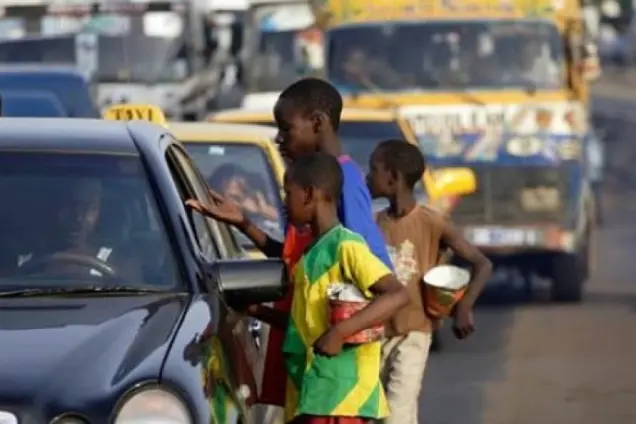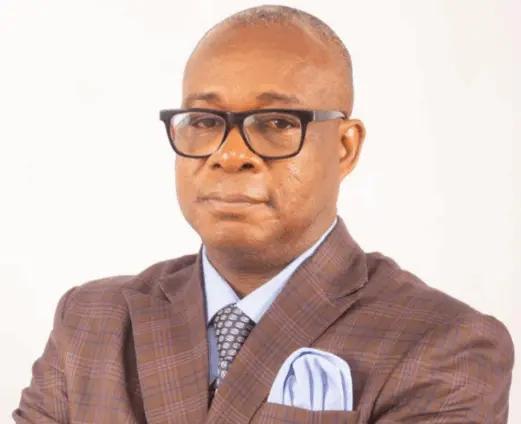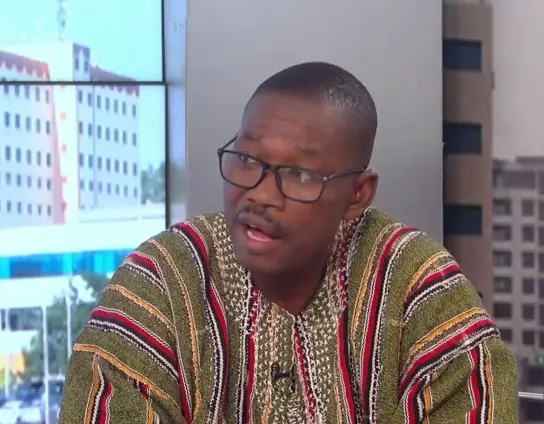The dusty streets of Accra, usually bustling with commerce and chatter, recently bore witness to a different kind of activity. Beyond the vibrant markets and tro-tro stations, an operation led by **Ghana Immigration** swept through the city, resulting in the **deportation** of 2,041 foreign nationals found to be **undocumented beggars**. These individuals, often drawn to Ghana by the promise of opportunity, now faced a forced return, their dreams of a better life disrupted.
This large-scale operation, while intended to address concerns about urban order and national security, has ignited a complex debate. It raises profound questions about cross-border movement, the realities of urban poverty, the responsibilities of governance, fundamental **human rights**, and the delicate balance required for regional stability in West Africa.
The **GIS operation** in Accra reflects a tension between **national sovereignty** and humanitarian concerns. Assistant Commissioner Mike Amoako-Atta of **Ghana Immigration** articulated the service’s intent to “sanitize our streets.” This rationale resonated with many Accra residents, who voiced concerns about public safety and the cleanliness of their city. Beyond these immediate concerns, the government aimed to enforce national laws regarding immigration and manage the influx of people into urban areas. There were also whispers of intelligence suggesting that some individuals, especially children, were being exploited by organized networks for begging.
However, the scale of the crackdown has also sparked disquiet. Some question whether such a sweeping action is the most effective or humane way to address the problem. Concerns have been raised about the adequacy of social safety nets within Ghana itself, leading some to wonder if the focus should be on providing support rather than immediate **deportation**. One Accra resident encapsulated the dilemma, stating, “We have sympathy, but Accra can’t become the solution for every challenge in West Africa.” The Ministry of Interior has emphasized the need to enforce national laws, given the rising demands on **urban poverty** impacted by large-scale migration.
The **Ghana Immigration Service** is operating under the legal framework that prioritizes the enforcement of national laws regarding immigration. This stance reflects a growing concern about the strain that large-scale migration places on the resources and infrastructure of urban centers like Accra.
At the heart of this debate lies the question of **human rights**. The Universal Declaration of Human Rights (UDHR) affirms the inherent dignity of every human being. For many of those apprehended, begging is not a career choice but a last resort, driven by dire economic circumstances, displacement caused by conflict, or the lingering effects of war. The presence of over 500 children among those deported is particularly troubling, highlighting their vulnerability to exploitation and abuse.
Organizations like the UNHCR and Amnesty International have weighed in on the situation. The UNHCR emphasizes that refugees and asylum-seekers should not be punished for illegal entry, particularly when they are fleeing persecution or violence. **Amnesty International** has called for the protection of migrants from exploitation and violence, urging governments to address the root causes of migration and to refrain from indiscriminate **deportation**. Ghanaian **human rights** organizations, such as Rights Ghana, have echoed these concerns, demanding due process and humane treatment for all detainees. They advocate for transparent profiling to identify and support the most vulnerable, especially children, rather than simply deporting them without considering their individual circumstances.
The **GIS operation** also throws light on broader **West Africa migration** patterns. The sheer number of foreign nationals involved underscores the interconnectedness of the region. ECOWAS agreements aim to promote free movement of people and goods within the bloc, but these aspirations are often undermined by stark economic disparities and persistent political instability. These inequalities drive individuals to seek alternative means of survival, sometimes leading them to the streets of Accra to beg.
Dr. Fatima Sow, an expert on **ECOWAS**, has highlighted the challenges to mobility within the region. She points to the lack of adequate social safety nets and the uneven economic playing field among member states as key factors that hinder the realization of true free movement. Experts argue that improved coordination on regional social and economic development is essential to address the root causes of migration and prevent future crises. A key question is how West African countries can manage migration flows while upholding the fundamental **human rights** of all individuals.
Beyond the statistics and policy debates, it’s crucial to remember the individual stories of those affected. Each person apprehended had a life, a family, and a reason for seeking refuge or opportunity in Accra. Many were driven by violence, extreme **poverty**, or even human **trafficking** in their home countries. People rarely migrate by choice; they are often pushed by desperation.
The long-term implications of **deportation** are also a matter of serious concern. Sending people back to the same conditions that forced them to flee in the first place perpetuates a cycle of desperation and displacement. This raises profound **ethical considerations** about Ghana’s role in the region and the potential consequences of its enforcement actions. Reports from similar operations in other countries suggest that deportees often return, driven by a lack of viable alternatives in their home countries.
Ultimately, the situation in Accra highlights the tension between a nation’s right to control its borders and its responsibility to protect vulnerable populations. Chapter 3, Article 12(1) of the Constitution of Ghana emphasizes that the fundamental human rights apply to everyone within its borders, regardless of nationality. The African Union’s Migration Policy Framework for Africa (2018–2030) also provides guidance on how to manage migration in a way that respects **human rights** and promotes sustainable development.
The key takeaways for Ghana, and indeed for the entire African continent, revolve around the need for a compassionate, rights-based approach to migration, particularly when children are involved. This requires a critical reflection on Ghana’s social responsibilities and its role within **West Africa**. The difficulties of regional integration underscore the urgent need for cooperative solutions that address the root causes of irregular migration.
In conclusion, the GIS operation targeting **undocumented beggars** in Accra underscores the complexities of cross-border movement and the challenges of balancing national interests with **human rights**. Addressing irregular migration requires tackling its root causes, upholding fundamental freedoms, and fostering international cooperation. The true measure of success lies not in the number of **deportations**, but in the humane treatment of vulnerable individuals and the development of long-term strategies that promote regional stability and shared prosperity in **West Africa**.
Image Source: MYJOYONLINE






















